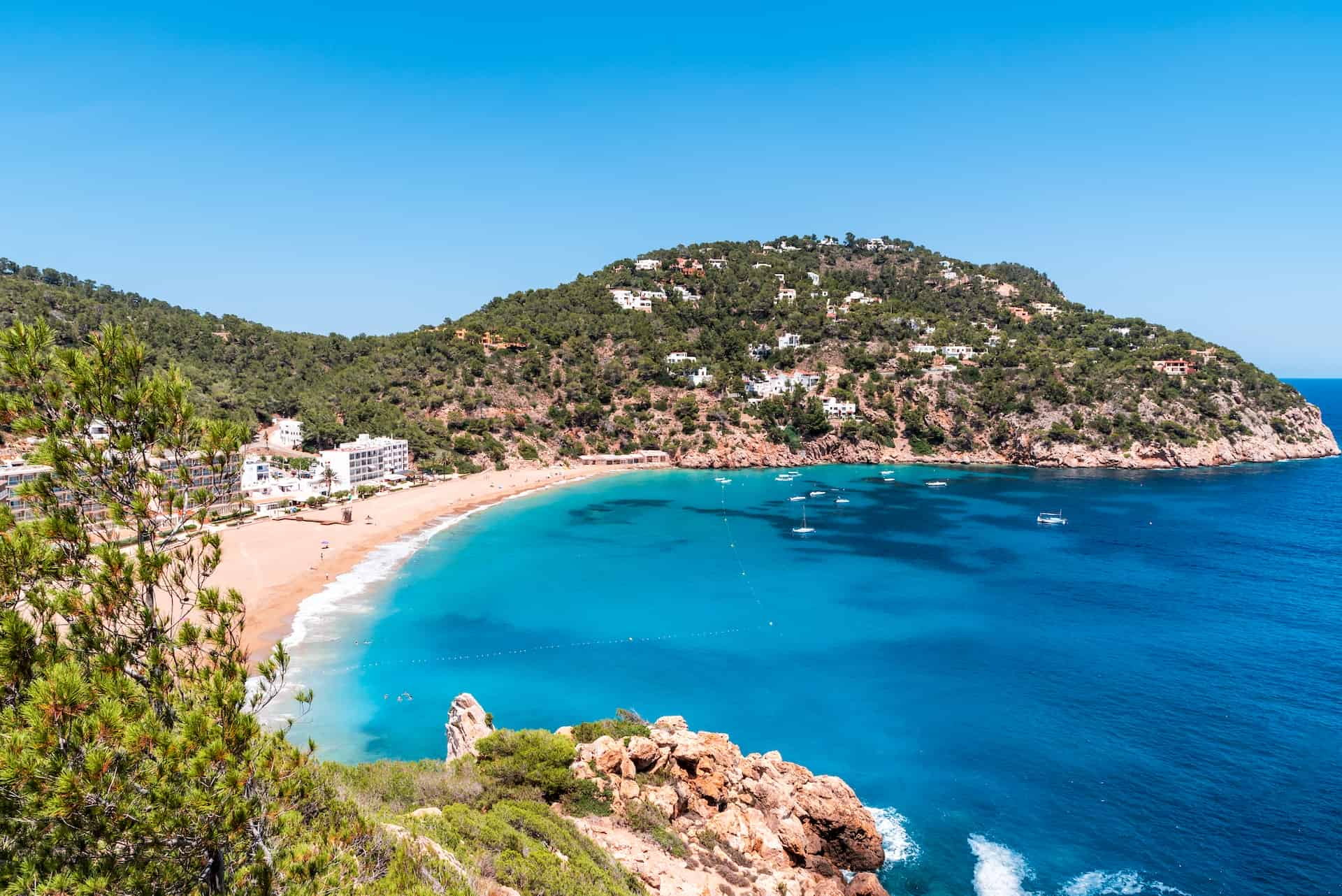Island of Legends: Delving into Ibiza’s Rich History
Introduction
Ibiza, an enchanting island nestled in the Balearic Sea, is famed worldwide for its pulsating nightlife and breathtaking beaches. However, beyond the hedonistic allure lies a storied history that dates back millennia. As one of the Mediterranean’s oldest settlements, Ibiza is steeped in legends, conquerors’ tales, and the ebb and flow of diverse civilizations. In this blog post, we will embark on a captivating journey to uncover the hidden treasures of Ibiza’s rich history, exploring the legacy left by its ancient inhabitants and the impact of successive civilizations on the island’s culture, architecture, and traditions.
The First Inhabitants: The Phoenicians
Our expedition into Ibiza’s past commences with the Phoenicians, a seafaring civilization known for its maritime prowess. Around the 7th century BCE, the Phoenicians, originally from the Levant, arrived on the island and established a settlement called “Ibossim.” The strategic location of Ibiza offered them an excellent trading post to connect the western Mediterranean with their home region.
The Phoenicians introduced various agricultural practices, crops, and fruits to the island, shaping its landscape and economy. Their skills as sailors and traders led to the establishment of an extensive trading network, bringing goods from across the Mediterranean to Ibiza’s shores. Moreover, they brought their gods and goddesses, such as Tanit, the goddess of fertility and love, whose influence can still be felt in the local religious beliefs.
Carthaginian Rule: A Blossoming Colony
As the Carthaginians extended their influence in the western Mediterranean, they took control of Ibiza after the decline of Phoenician power. The island flourished under Carthaginian rule, witnessing the construction of impressive fortified walls, public buildings, and temples.
The Carthaginian era also saw an increase in trade activities and cultural exchanges. Ibiza became a vital hub for the trading of goods, especially metals, fabrics, and ceramics. Carthaginian coins found on the island bear witness to this thriving economic activity, linking it with the wider Carthaginian trade network. Despite the flourishing colony, Ibiza was not immune to conflicts, and it faced several wars with rival powers.
Roman Conquest: The Emergence of Ebusus
In 123 BCE, the Romans, under the leadership of Quintus Caecilius Metellus, defeated the Carthaginians and claimed control over Ibiza. Renaming the island “Ebusus,” the Romans brought with them their administrative and engineering expertise, leaving an indelible mark on Ibiza’s infrastructure.
Remnants of Roman villas, aqueducts, and roads still stand today, reminding us of their sophisticated urban planning and architectural prowess. The Romans also introduced new agricultural techniques, transforming the island’s landscape and enhancing its agricultural productivity. Olive oil production and viticulture became integral to Ibiza’s economy during this period.
Vandals, Byzantines, and Moors: Waves of Conquest
With the fall of the Western Roman Empire, Ibiza endured successive waves of conquest. First came the Vandals, followed by the Byzantines, and later, the Moors, who ruled the island for more than four centuries.
The Moorish period was a time of great cultural exchange and progress in agriculture, science, and art. The Moors left behind an exquisite legacy of intricate pottery, textiles, and architecture, such as the famous Puig des Molins necropolis, a UNESCO World Heritage Site. Their influence on Ibiza’s cuisine, with the introduction of spices and new cooking techniques, can still be tasted in traditional dishes today.
The Catalan Conquest: Unification with Spain
In the 13th century, the Catalan Crown, under King James I, launched a military campaign to conquer the Balearic Islands. Ibiza was integrated into the Crown of Aragon, subsequently unifying with the Kingdom of Spain.
The Catalan conquest ushered in a new era for Ibiza, shaping its administrative and legal systems and promoting trade with the mainland. The island’s population witnessed an influx of immigrants, leading to a diverse mix of cultures and traditions that persist to this day. Despite being part of Spain, Ibiza has managed to retain its distinct Balearic identity, evident in its local dialect and unique customs.
Pirates, Corsairs, and the Tower of Defense
As Ibiza’s strategic location made it a target for marauding pirates and corsairs, the islanders constructed fortified towers and walls for defense. The infamous pirate Barbarossa, also known as Redbeard, was a recurring menace, leading to further fortification of the coastline.
One of the most iconic defensive structures is the Torre del Pirata, or Pirate Tower, which stands tall on the island’s rocky cliffs. These fortifications serve as a reminder of Ibiza’s tumultuous past and the resilience of its inhabitants. Although piracy is a thing of the past, the watchtowers stand proudly as a part of Ibiza’s architectural heritage, offering stunning vistas of the azure sea.
Modern Ibiza: From Fishing Village to Global Icon
Throughout the centuries, Ibiza’s history was marked by shifts in political power, cultural influences, and economic activities. By the 20th century, the island underwent a transformation from a humble fishing village to a mecca for artists, writers, and intellectuals seeking inspiration in its natural beauty and bohemian atmosphere.
In the 1960s and 1970s, Ibiza became a haven for the hippie movement, attracting free-spirited individuals from all corners of the globe. The legacy of this era is evident in the island’s laid-back, liberal culture and its celebration of creativity and artistic expression. Ibiza’s transformation into a global icon of electronic dance music (EDM) in the 1980s further cemented its reputation as a playground for partygoers and music lovers alike.
FAQ
1. What are some must-visit historical sites in Ibiza?
Some must-visit historical sites in Ibiza include the Puig des Molins necropolis, the Archaeological Museum of Ibiza, the Dalt Vila (Ibiza’s old town), and the various watchtowers and fortifications scattered along the coastline.
2. How do I explore Ibiza’s history while enjoying its nightlife?
To explore Ibiza’s history while enjoying its nightlife, consider starting your evenings with a guided historical walking tour through Dalt Vila or the old town. During the day, visit museums and archaeological sites to delve deeper into the island’s past.
3. What are some traditional dishes that reflect Ibiza’s historical influences?
Traditional Ibiza dishes like “Bullit de Peix” (fish stew), “Sofrit Pages” (a hearty meat and potato stew), and “Ensaimada” (sweet pastry) showcase the island’s culinary history with influences from the Moors, Catalans, and other civilizations.
4. How can I best experience Ibiza’s ancient culture and heritage?
To experience Ibiza’s ancient culture and heritage, attend traditional festivals such as the “Fiesta de la Tierra” (Land Festival) and immerse yourself in local customs, crafts, and gastronomy. Also, consider joining historical tours led by knowledgeable guides.
5. Is Ibiza only known for its nightlife, or does it offer more cultural experiences?
While Ibiza is famous for its vibrant nightlife, it also offers numerous cultural experiences. You can explore ancient ruins, visit museums, attend local festivals, and engage in traditional activities to discover the island’s rich cultural heritage.
6. Are there any events that celebrate Ibiza’s historical significance?
Yes, Ibiza hosts various events that celebrate its historical significance. For instance, the “Medieval Fair” recreates the island’s medieval past, while the “Festival of Sant Ciriac” honors the patron saint of Ibiza with religious and cultural festivities.
7. How has Ibiza managed to preserve its historical sites and traditions amidst tourism development?
The local authorities have made efforts to protect and preserve Ibiza’s historical sites by designating them as UNESCO World Heritage Sites and implementing strict conservation regulations. Additionally, the island’s residents take pride in their heritage and work towards maintaining their traditions alongside the thriving tourism industry.
8. Can I visit the ancient watchtowers and fortifications on my own?
Yes, many of the ancient watchtowers and fortifications are open to the public. While some sites are accessible by foot, others might require a short hike. It’s advisable to check local information centers for maps and directions before embarking on your exploration.
9. Are there any hidden archaeological gems on the island?
Indeed, Ibiza holds several hidden archaeological gems waiting to be discovered. Some lesser-known sites include ancient cave dwellings, prehistoric rock carvings, and hidden ruins in rural areas. Exploring these lesser-known sites can be a thrilling adventure for history enthusiasts.
10. What role does Ibiza’s history play in its modern identity?
Ibiza’s history plays a significant role in shaping its modern identity. The island’s multicultural past has left an indelible mark on its traditions, cuisine, architecture, and even its vibrant nightlife. Embracing its historical roots, Ibiza continues to evolve as a unique blend of ancient heritage and contemporary allure, attracting visitors from across the globe seeking a truly unforgettable experience.
Conclusion
Ibiza’s captivating history is a tapestry woven from the threads of ancient civilizations, conquerors, pirates, and artists. It stands as a testament to the resilience and adaptability of its people, who embraced diverse cultures and forged a unique identity for their island.
As we stroll through Ibiza’s charming villages, explore its archaeological sites, and dance under the moonlit sky, let us remember that beneath the modern veneer of beach clubs and nightlife, lies an island of legends, where every stone has a story to tell.
So, the next time you find yourself on the shores of Ibiza, take a moment to immerse yourself in its rich history, and you’ll discover a deeper appreciation for the enchanting island that continues to captivate hearts and souls worldwide.





